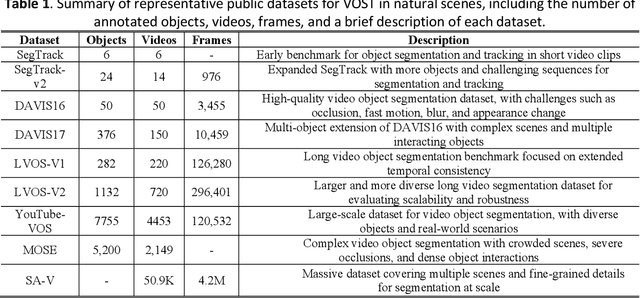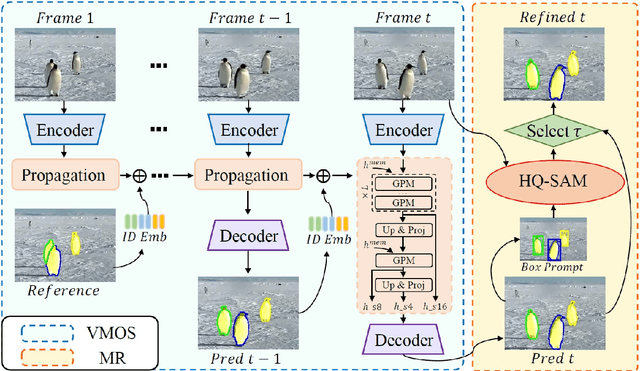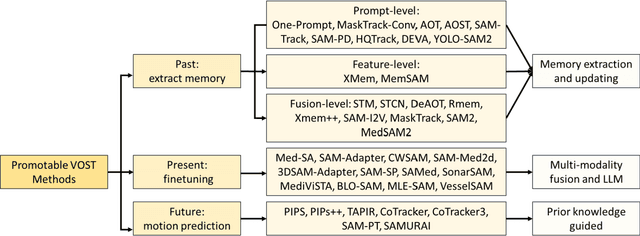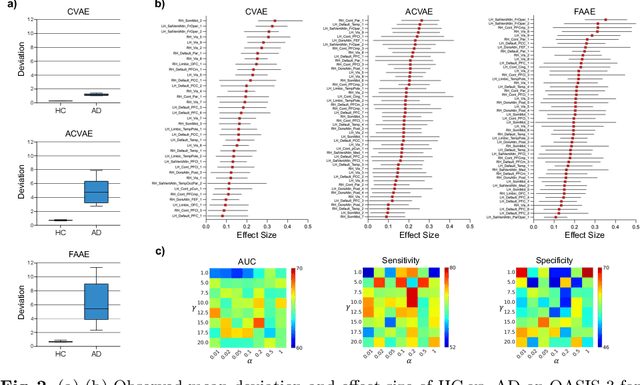Songlin Zhao
Segment Anything for Video: A Comprehensive Review of Video Object Segmentation and Tracking from Past to Future
Jul 30, 2025



Abstract:Video Object Segmentation and Tracking (VOST) presents a complex yet critical challenge in computer vision, requiring robust integration of segmentation and tracking across temporally dynamic frames. Traditional methods have struggled with domain generalization, temporal consistency, and computational efficiency. The emergence of foundation models like the Segment Anything Model (SAM) and its successor, SAM2, has introduced a paradigm shift, enabling prompt-driven segmentation with strong generalization capabilities. Building upon these advances, this survey provides a comprehensive review of SAM/SAM2-based methods for VOST, structured along three temporal dimensions: past, present, and future. We examine strategies for retaining and updating historical information (past), approaches for extracting and optimizing discriminative features from the current frame (present), and motion prediction and trajectory estimation mechanisms for anticipating object dynamics in subsequent frames (future). In doing so, we highlight the evolution from early memory-based architectures to the streaming memory and real-time segmentation capabilities of SAM2. We also discuss recent innovations such as motion-aware memory selection and trajectory-guided prompting, which aim to enhance both accuracy and efficiency. Finally, we identify remaining challenges including memory redundancy, error accumulation, and prompt inefficiency, and suggest promising directions for future research. This survey offers a timely and structured overview of the field, aiming to guide researchers and practitioners in advancing the state of VOST through the lens of foundation models.
Normative Modeling for AD Diagnosis and Biomarker Identification
Nov 15, 2024



Abstract:In this paper, we introduce a novel normative modeling approach that incorporates focal loss and adversarial autoencoders (FAAE) for Alzheimer's Disease (AD) diagnosis and biomarker identification. Our method is an end-to-end approach that embeds an adversarial focal loss discriminator within the autoencoder structure, specifically designed to effectively target and capture more complex and challenging cases. We first use the enhanced autoencoder to create a normative model based on data from healthy control (HC) individuals. We then apply this model to estimate total and regional neuroanatomical deviation in AD patients. Through extensive experiments on the OASIS-3 and ADNI datasets, our approach significantly outperforms previous state-of-the-art methods. This advancement not only streamlines the detection process but also provides a greater insight into the biomarker potential for AD. Our code can be found at \url{https://github.com/soz223/FAAE}.
Regularized Kernel Recursive Least Square Algoirthm
Aug 28, 2015
Abstract:In most adaptive signal processing applications, system linearity is assumed and adaptive linear filters are thus used. The traditional class of supervised adaptive filters rely on error-correction learning for their adaptive capability. The kernel method is a powerful nonparametric modeling tool for pattern analysis and statistical signal processing. Through a nonlinear mapping, kernel methods transform the data into a set of points in a Reproducing Kernel Hilbert Space. KRLS achieves high accuracy and has fast convergence rate in stationary scenario. However the good performance is obtained at a cost of high computation complexity. Sparsification in kernel methods is know to related to less computational complexity and memory consumption.
 Add to Chrome
Add to Chrome Add to Firefox
Add to Firefox Add to Edge
Add to Edge